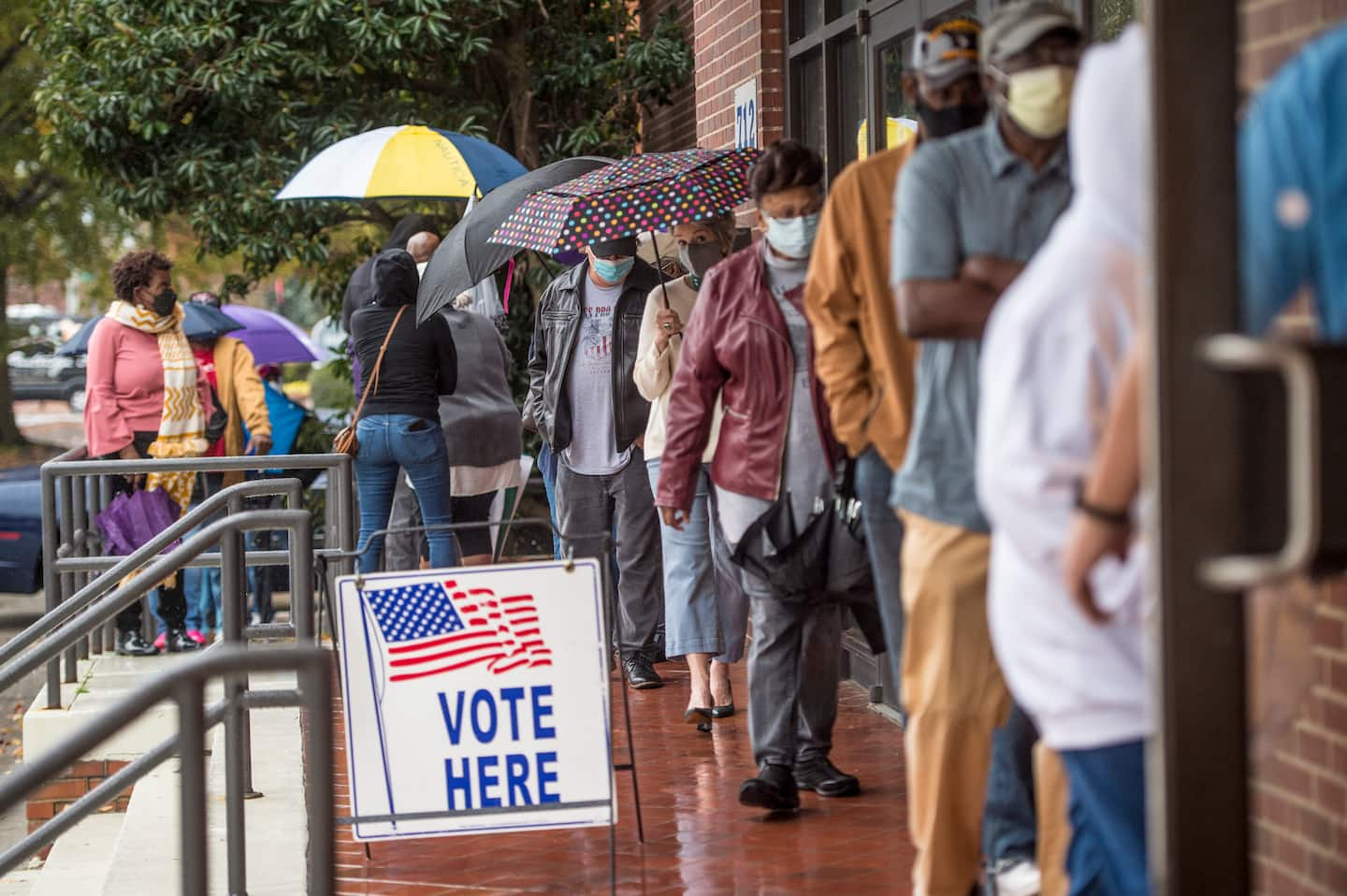No, Georgia’s new voting law is not a return to Jim Crow

The new Georgia law does nothing to return the state to this terrible time. Black voters will still be able to register without hindrance. And they, like all other Georgians, will be able to vote in many different ways: on Election Day, in-person before Election Day, or by mail without an excuse if they are 65 or older.
Democrats charge that some of the law’s provisions will have a differential impact on Black voting and thus demonstrate prejudicial intent. These provisions include requirements that voters present a photo ID when voting in person; that those voting by mail provide their driver’s license number or the last four digits of their Social Security number; and that in-person voting on Sundays are now a county option rather than a statewide mandate. None of these provisions should prevent anyone from voting, and many are popular even among Black voters.
Photo identification is a case in point. Democrats have long resisted the requirement on the theory that some voters without driver’s licenses or other state-issued IDs could be disenfranchised. But as progressive elections analyst Ruy Teixeira points out, studies regularly show that photo ID requirements have not reduced turnout. Georgia’s law also permits voters to ask for a free voter-ID card if they don’t have one of the six permitted forms of photo ID. A recent poll conducted for the Atlanta Journal-Constitution also found that 74 percent of Georgians support a photo-ID requirement for voting, including 63 percent of Black respondents. Democrats’ objections are an answer in search of a problem.
The new mail-in ballot measures are also not likely to depress turnout. Black voters already prefer to vote in person, either early or on Election Day. Seventy percent say they voted in-person in the 2020 presidential election according to the AJC poll. Moreover, the law’s new security measure, which replaces the old system of using a person’s signature to verify absentee ballots with a requirement that absentee voters provide a driver’s license or state ID card, will likely decrease the chance that valid ballots are wrongly rejected. That’s a good thing that everyone should cheer.
No-excuse mail balloting also did not lead to higher voter turnout in 2020. Stanford University researchers examined this question in a recent study and found that turnout increased by roughly the same amount in states that did not allow no-excuse mail voting as in states that did. “Absentee voting doesn’t significantly affect whether people vote or not,” the study’s primary author said. “It mostly changes how they vote. Voter interest is far more important in determining turnout.”
The changes to Sunday early voting will also not likely have any effect. Despite Democratic claims that Georgia’s after-church “souls to the polls” early voting initiatives drove turnout, data from the 2020 presidential election and the Jan. 5 Senate runoffs showed that Sundays were the least popular days to vote in both races. In the runoff, more than 174,000 people voted on each weekday of early voting, but only 31,000 people voted on Sunday, Dec. 20, and only about 20,000 voted the following Sunday. Sundays were also the lightest voting day of the week in the November presidential election as well. Georgia’s new law also mandates an extra Saturday of early voting and allows counties the option of allowing early voting on Sundays. Voting experts say the bill expands early voting access, the opposite of Democratic claims.
Even President Biden’s claim that the law bans voters from receiving water and food while waiting in line is false. The bill prevents electioneering under the guise of offering food and water, but it allows poll workers to provide self-service water to voters close to the polls and allows anyone to offer food and drinks more than 150 feet away from the polling location or more than 25 feet from people in line. It also requires polls where there is a wait of more than an hour to hire enough staff to reduce the waiting time. That will make it easier, not harder, for people to vote.
No bill is perfect, and reasonable people can disagree about the balance between voter access and election integrity. But Democratic claims that this law amounts to racist voter suppression should be seen for what they are: overwrought partisan rhetoric that unnecessarily increases racial and political tensions.
Read more:






